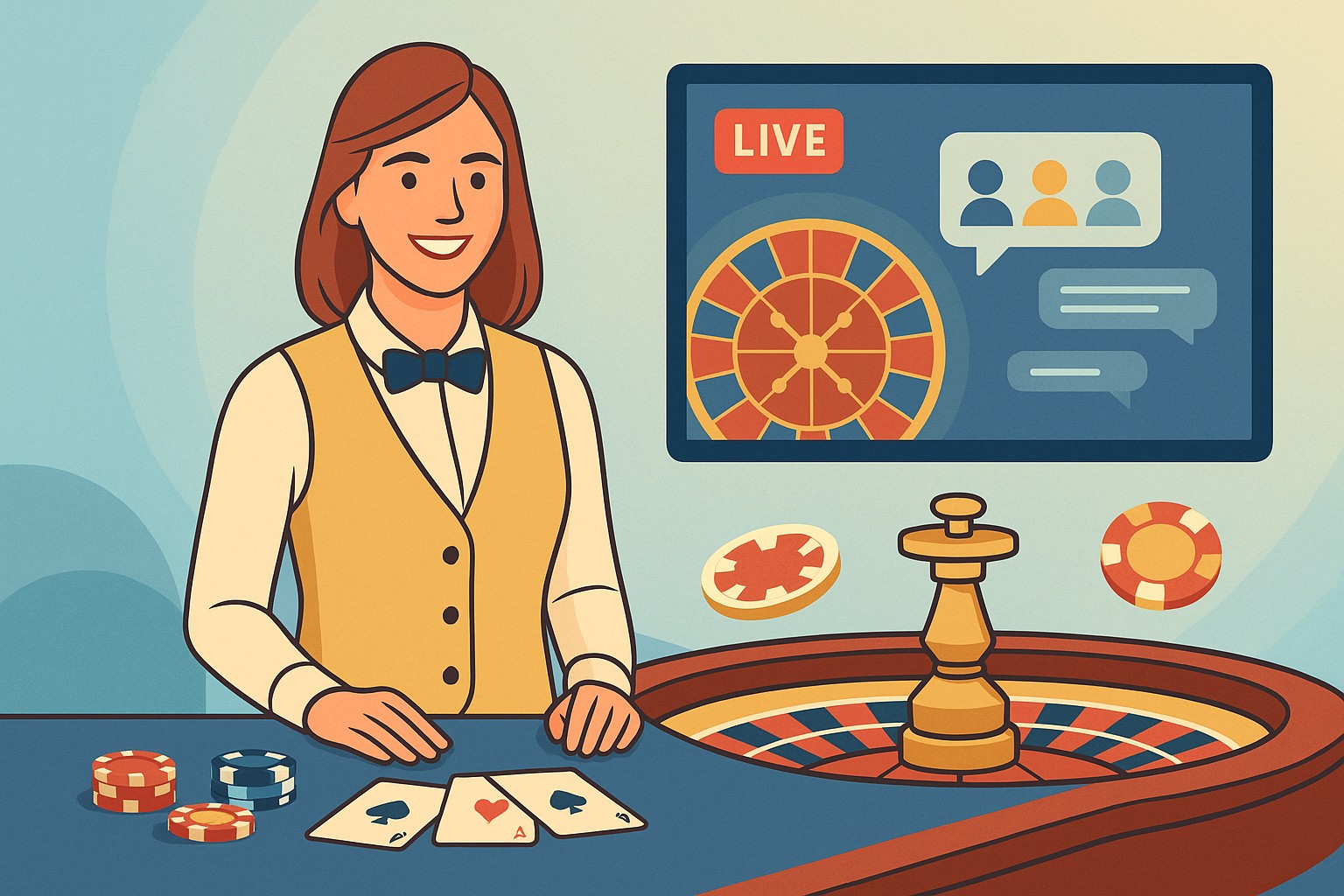
Live-dealer casino shows have become something no one expected a decade ago. Their purpose has changed drastically and they no longer serve one master – the player chasing the win.
Today, these live-streamed games mix entertainment, human connection, and audience energy in ways that feel closer to a late-night game show or a Twitch livestream than to a quiet online casino room. People join to bet, but many also show up just to watch, laugh, and take part in something that feels alive.
What Are Live-Dealer Shows?
A live-dealer show is an online game where a real person, often dressed like a professional host, runs the table. Players log in from phones or laptops, place their bets, and watch the action develop live on screen. Games like blackjack, roulette, or baccarat come with a human voice that explains the moves, greets the players, or jokes with the chat.
What makes this format stand out from regular online casinos is the way players are drawn into a real-time experience. The chance to exchange a few words with the dealer or follow the action from multiple camera angles turns what used to be a simple almost silent game into something more engaging. What’s more, platforms offering this kind of experience are not limited to local markets only; many live-dealer games are hosted by offshore casinos, which often attract players with a wider game selection, multilingual dealers, and fewer regional limits. This mix delivers not just gambling, but interaction and entertainment that reaches a broader range of people than ever before.
How Entertainment Elements Entered the Scene
It didn’t take long for casino companies to realize they had something bigger on their hands. Players weren’t just coming for the gamble; they were staying for the vibe. Realizing this, studios began turning their spaces into full sets, adding bright lights, themed rooms, and hosts who could carry a conversation. A good host now is both a presenter and a psychologist and knows how to explain the rules, keep the mood light, and handle a crowd that spans dozens of countries.
Many platforms invested heavily in the technology behind the scenes. Multiple 4K cameras capture sharp overhead shots and dealer close-ups, streamed in HD to any device. This level of production transforms the experience and turns a routine casino game into a polished, on-screen performance. The evident success of all these subtle high-end tactics shows how live dealer casinos work when entertaining gambling pairs with technological advancement. Titles like “Crazy Time” or “Monopoly Live” build on this foundation by adding bonus rounds, trivia, and humor, which makes the sessions feel less like placing a bet and more like joining a party.
Why People Watch – Even Without Playing
Not everyone joins these streams to place money on the line. Some tune in for the entertainment, following hosts they enjoy or treating the broadcast like a fun background show. Others watch to pick up the rules, get a feel for the game flow, or enjoy the unpredictable energy that comes with live play.
Clips from these streams often appear on TikTok, YouTube, or Reddit, where they draw in curious viewers who never planned to land on a casino site. Research on this behavior, known as lurking as a mode of listening, shows that many viewers are passive not because they’re uninterested but because they prefer to watch, learn, or quietly feel part of something without stepping into the spotlight. This quiet, curious audience now plays a bigger role than many companies ever expected.
What This Means for Gambling and Streaming
For the gambling industry, live-dealer shows have become more than a feature. Now, they’re a strategy. This means that the focus of the casinos is no longer just the betting volume. They also track how long people stay, how often they return, and how engaged they feel. Content, not just games, keeps the audience connected.
At the same time, this mix of gambling and entertainment has raised fresh concerns. Regulators are asking how far casino shows can go before they risk pulling in underage audiences or people vulnerable to addiction. Companies are now under pressure to set clearer boundaries to make sure the entertainment side doesn’t mask the risks that come with gambling.
Final Thoughts and Future Prospects
The next phase may bring surprising crossovers. Streaming platforms might explore gambling-themed shows, while casinos could launch pure entertainment streams, no betting required, as a means to attract new viewership. Both industries are testing how far this hybrid model can go. The outcome may define what kinds of audiences they reach, and what kind of responsibility they will be expected to carry in the years ahead.
